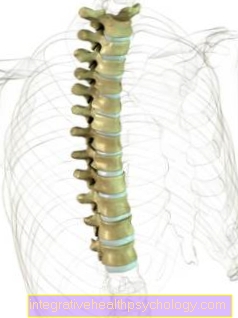Heartburn causes
What are the causes of heartburn?
On the one hand, an overproduction of gastric acid can be the cause of the primary reflux disease.
Here, the peristalsis (coordinated muscle contraction) of the esophagus is no longer able to transport the acidic stomach contents back into the stomach quickly enough. It can be said that there is reduced self-cleaning of the esophagus.

Hyperacidity
After the mouth with its teeth, the stomach is the second place where food is chopped up. There the food is supposed to be digested and broken down into its smaller components. At the same time, potentially dangerous pathogens that can be found in the food are to be killed. For this reason, the stomach is filled with a very acidic digestive juice, the gastric acid. Due to various hormones or other dysregulations in the body, a more acidic gastric juice can be produced than is normally normal. If this gets into the esophagus, it is particularly corrosive there and causes heartburn.
Another cause of primary reflux disease (primary heartburn) may be a weakness of the lower esophageal sphincter (lower esophageal sphincter). Often this is due to a diaphragmatic hernia (Hiatal hernia). The hiatal hernia is a protrusion of the upper part of the stomach through a natural opening in the diaphragm (Esophageal hiatus), into the chest. This type of diaphragmatic hernia (hernia) is often a harmless chance finding, but in some cases the hernia causes heartburn (reflux disease).
Read more on the topic: Diaphragmatic hernia
Lower sphincter weakness
The sphincter muscle (also called the sphincter) is located between the esophagus and the stomach. Usually he is permeable to everything that comes from above. These are the drinks and food that one has consumed. At the same time, it is impermeable to everything that is in the stomach. There, food and drinks are mixed with the acidic gastric juice and digested by it. If there is sphincter weakness, acidic stomach contents can flow back into the esophagus during digestion, causing a burning sensation called heartburn.
Read more on the topic: Diseases of the esophagus
There are also other factors and causes that can cause heartburn (Reflux = Reflux) favor:
- Pressure increase in the abdominal cavity:
- If you are overweight (obese)
- pregnancy
More on this topic at: Heartburn during pregnancy - sedentary work
the pressure in the abdominal cavity increases (abdomen).
- Food and luxury goods ("factors of prosperity"):
- High-fat diet
- chocolate
- alcohol
- coffee
- Nicotine (smoking)
increase acid excretion (secretion) of the stomach cells (Parietal cells).
Heartburn during pregnancy
The body goes crazy during pregnancy because it has to adapt to many changes. This leads to the fact that many hormones are released that are otherwise not found in the body or in smaller quantities. Many pregnant women feel nauseous, especially at the beginning of pregnancy, so that they also vomit. When vomiting, the stomach contents flow through the esophagus together with the acidic digestive juice. There is sensitive mucous membrane that is not used to the high acid content. It can therefore easily be attacked by gastric juice and cause symptoms such as heartburn.
Read more on the topic: Vomiting during pregnancy
In later stages of pregnancy, the unborn child is so large that it moves the organs in the abdomen. This often pushes the stomach up a little. This automatically means that the stomach contents press more strongly from below against the sphincter muscle between the stomach and esophagus. If the muscle cannot withstand the pressure, acidic digestive juice gets into the esophagus and irritates it. Heartburn during pregnancy is in most cases a result of normal processes in the body and therefore not necessarily a worrying sign. Nevertheless, the attending physician should know about heartburn. If necessary, he can prescribe medication to relieve the symptoms.
Read more on the topic:
- Heartburn during pregnancy
- Stomach pain in pregnancy
- Antacids in Pregnancy
Heartburn from smoking
In addition to many other illnesses, smoking often causes heartburn. The symptoms rarely occur immediately after smoking a cigarette. The development of heartburn is based on three different mechanisms: First, less saliva is produced by smoking, which protects the esophagus. In addition, the saliva produced is less basic and can therefore more difficult to neutralize stomach acid. In addition, the individual pollutants that enter the esophagus with the smoke also attack it and thereby lead to small lesions.
Read more on the topic: Smoking Related Diseases, Acupuncture Smoking
Vomiting heartburn
Repeated vomiting causes stomach acid to get back into the esophagus. In contrast to the stomach, however, the esophagus is not protected against the extremely acidic digestive juice and is therefore easily damaged. This damage or irritation to the mucous membrane can cause symptoms such as heartburn. It is also possible that frequent vomiting can irritate the sphincter between the esophagus and stomach and therefore no longer close reliably. This also allows gastric juice to flow back into the esophagus and irritate it.
Read more on the topic: Larynx after vomiting, anti-vomiting medication
Heartburn from exertion
Symptoms such as heartburn are not unknown to many people who play sports. Several causes are suspected: When exercising, the body needs its energy for movement. It therefore switches to energy-saving mode in the digestive tract. Food is digested more slowly, which means that more stomach acid is produced. In addition, food that has already been digested can be transported back into the esophagus more easily through a contraction (contraction of the stomach during digestion). In addition, more air is often swallowed during exertion. During the subsequent burping, stomach acid may also get back into the esophagus.
Read more on the topic: Rib pain these are the causes, sternum pain
Heartburn from not drinking enough
Insufficient fluid intake is often linked to heartburn. It is possible that the stomach acid is more concentrated due to the small amount of fluid and thus more easily triggers heartburn. In most cases, however, the causal relationship cannot be identified: illnesses such as gastrointestinal infections trigger heartburn through vomiting. There is also a loss of fluid. Therefore, heartburn and “drinking too little” are often experienced at the same time, without there being a direct connection.
Read more on the topic: Gastrointestinal tea
What foods cause heartburn?
Heartburn can be triggered by a variety of foods. It is true that foods that are more frequently associated with heartburn can be specified. However, the exact selection of problematic foods is usually person-specific and can best be found out through a kind of heartburn diary. Since heartburn is a result of overproduction of stomach acid, it is advisable to avoid acidic foods. These include above all citrus fruits (in juices, as fruit, in salads, etc.) but also salad dressings that contain vinegar are particularly acidic. It is also advisable to avoid all types of heavily spiced food. Particularly spicy dishes drive the stomach to an increased acid production. In addition, many people affected have problems with particularly fatty foods. This applies to all types of fried meat, as well as to cream-based sauces. In addition to these foods, some beverages cause heartburn. These are mainly alcoholic beverages and coffee. Regardless of the foods you eat, care should be taken not to eat too large portions. This allows the stomach to digest the food offered to it in small steps.
Read more on the topic:
- Stomach cramps after eating
- Acid-base diet
- Abdominal pain from drinking coffee
- Diet for heartburn
Heartburn from alcohol
Alcohol is one of the most common heartburn triggers. Particularly high-proof alcoholic beverages (schnapps, liqueurs, wine, long drinks) stimulate acid production in the stomach and cause heartburn. But drinks with a lower alcohol content (beer) can also trigger heartburn. They reduce the tension in the sphincter between the esophagus and the stomach so that the digestive juice can more easily get into the esophagus.
Read more on the topic: Stomach pain after alcohol
Mental causes
The psychological causes of heartburn are diverse and lead to the symptoms in different ways. Stress or other psychological problems cause the release of hormones that inhibit the digestive process. This means that food stays in the stomach longer and acid production is increased. Both of these promote heartburn. Medicines that work against mental illnesses (psychotropic drugs) often have nausea and vomiting (subsequently also heartburn) as side effects. In addition, psychological tension often results in unhealthy eating behavior, which can also cause heartburn.
Read more on the topic: Consequences of stress
stress
Since heartburn is often caused by overproduction of stomach acid, it is easy to imagine that a "restless" stomach can cause heartburn. Many people react to stress with nausea or stomach pain. One of the reasons for this is that the body releases stress-related hormones that stimulate the production of acid in the stomach. Due to the increased production, the digestive juice in the stomach is more acidic than usual. If the sphincter muscle between the esophagus and stomach cannot completely block the digestive juice, it gets into the esophagus and causes heartburn.
Read more on the topic: Heart stumbling from stress, stomach pain from stress
Causes of Secondary Reflux Disease
- After operations, such as widening the stomach entrance (cardiomyotomy),
- Scleroderma (autoimmune systemic disease with multiple organ involvement (including stiffening of the esophageal wall). Conditional disruption of the mobility of the esophagus (peristalsis) as causes of heartburn.
- If the gastric outlet is narrow (Stenosis) gastric emptying into the duodenum is delayed so that it is from a full stomach (Pressure increase) increased gastric acid reflux into the esophagus.
What drugs cause reflux?
Drugs that increase acid production in the stomach, in particular, cause reflux. These include pain relievers such as aspirin or ibuprofen. Drugs containing steroids also promote acid production. Likewise, reflux can be triggered by antibiotics or psychotropic drugs (drugs that help with mental illness). Some asthma drugs work on muscle cells, causing them to droop. In the stomach, this means that the sphincter no longer holds tight, which leads to reflux.
Medicines can maintain heartburn (reflux disease) in different ways (increased acid secretion, reduction of protective local components of the mucous membrane, etc.). These drugs include:
- Anticholinergics (drugs against bronchial asthma, chronic obstructive pulmonary disease (COPD) and many more)
- Opiates (morphine-like painkillers (analgesics)
- Theophylin (bronchial asthma, chronic obstructive pulmonary disease (COPD))
- Beta blockers (high blood pressure / arterial hypertension)
- Alpha-adrenergic drugs (bronchial asthma and COPD),
- Nitrates (cardiac insufficiency) and coronary artery disease (CHD)
Hoarseness from heartburn
Heartburn is usually not just characterized by a burning pain. Cough and hoarseness are also symptoms of reflux (reflux). It is not uncommon for gastric acid to travel through the esophagus to the larynx and from there into the trachea, where it can also hit the vocal cords. These are not protected against stomach acid and are therefore very easily irritated. This creates small inflammations that cause hoarseness.
Read more on the topic: Medicines for hoarseness
Causes esophagitis
An esophagitis usually results from an injury to the top layer of the mucous membrane. This can be caused by gastric juice, accidentally swallowed foreign bodies or a gastric tube can damage the mucous membrane. Pathogens such as viruses, bacteria or fungi can also cause an infection in the esophagus. Damage to the mucous membrane layer causes irritation of the esophagus, which is often expressed in the form of heartburn.
Read more on the topic: Esophagitis, burning pain in the esophagus - that's behind it
Causes of the diaphragmatic hernia
Just before the esophagus ends in the stomach, it passes through the diaphragm. At this passage there is a constriction in the esophagus, which sits just above the sphincter muscle. With a diaphragmatic hernia, part of the stomach comes up through this hole in the diaphragm. The bottleneck is no longer on the border between the two organs. Instead, it irritates the stomach and constricts it. As a result, digestive juice can easily get into the esophagus and irritate it, causing heartburn.
Read more on the topic: Pain in the upper abdomen
Causes stomach ailment
There are several stomach ailments that can cause heartburn. Inflammation of the gastric mucosa is often caused by bacteria and leads to increased acid production, which favors the development of heartburn. A stomach ulcer or stomach cancer can affect the lower gastric sphincter and thereby easily clog the gastric outlet. This means that the food stays in the stomach longer, which also results in more acid production.
Read more on the topic: Abdominal pain due to psyche, bad breath



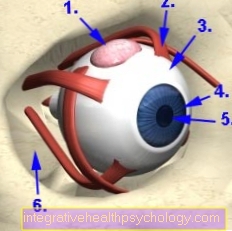


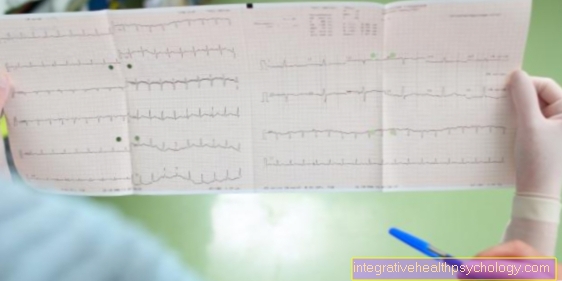

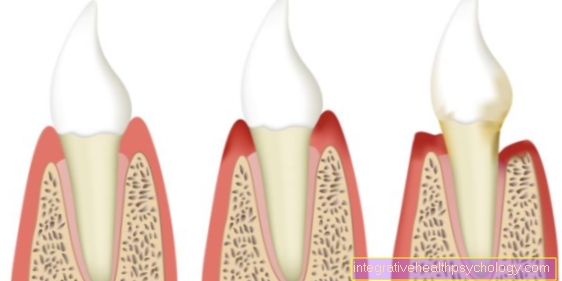
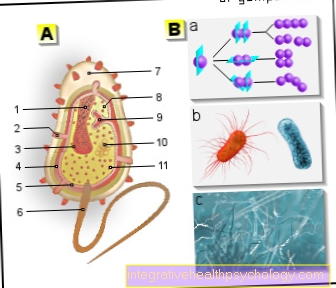

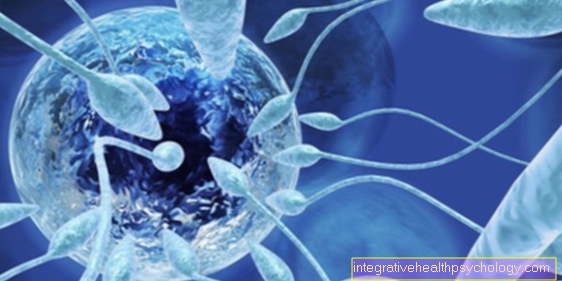


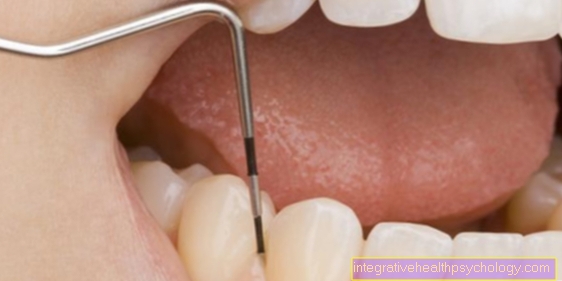
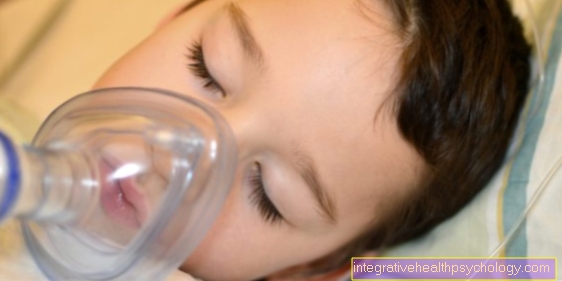
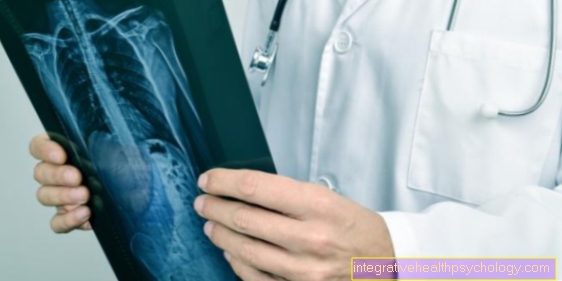
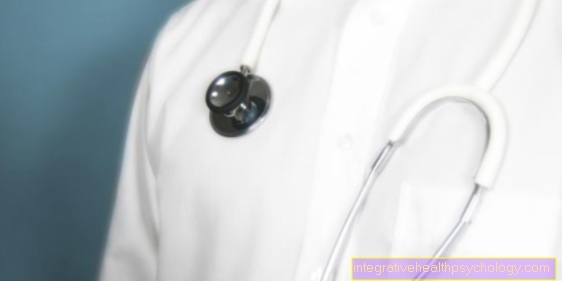



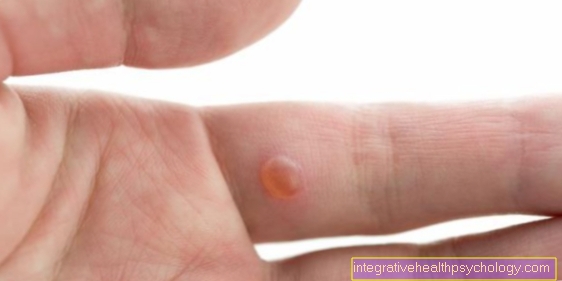
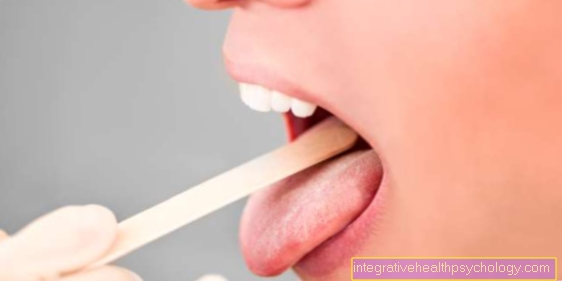
.jpg)


